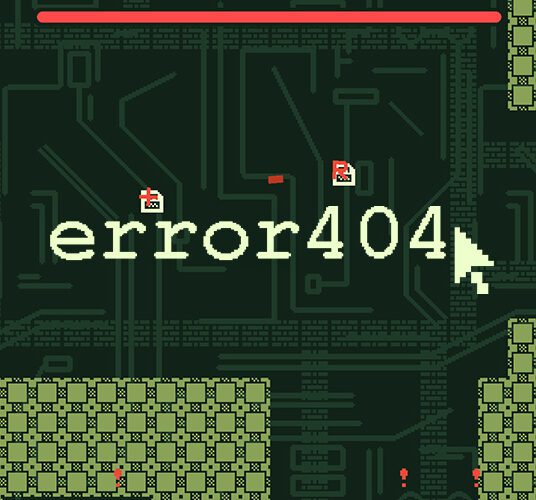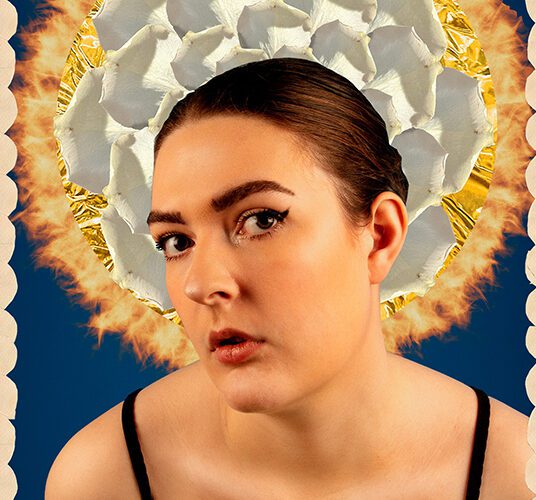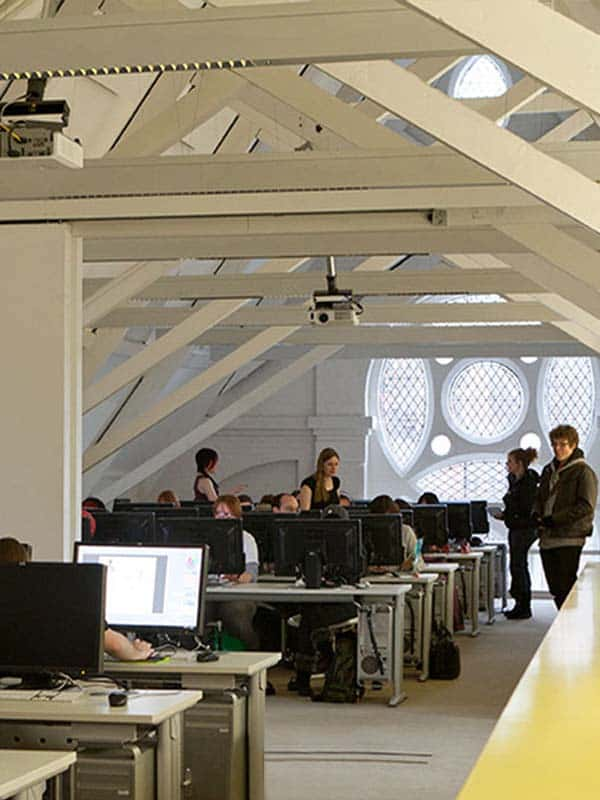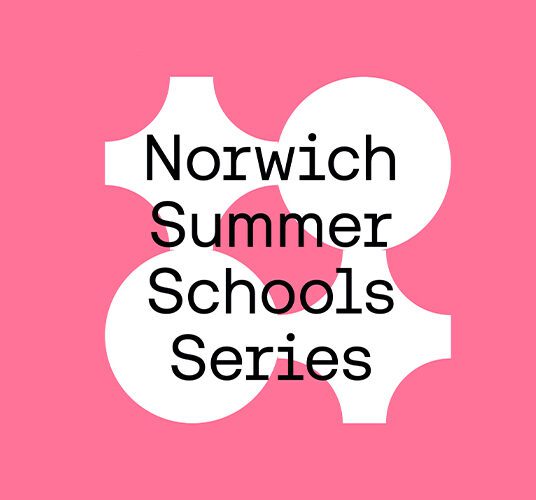



Photography BA (Hons)
Length:
3 or 4 year options
UCAS Code:
W640 (3 Year)
W641 (4 Year)
Institution Code:
N39
Sandwich courses:
Creative Professional Development (1 year, Level 5 diploma), or Creative Computing (1 year, Level 5 diploma), available between years 2 & 3
Think critically and creatively as you work practically to develop a distinctive portfolio that sets you apart.
BA (Hons) Photography focuses on personal practice, technical craft, and an in-depth understanding of photography in a contemporary context. From location and studio lighting to the latest digital imaging techniques, our AOP-accredited course gives you the opportunity to develop diverse and transferable skills in our industry-standard photography studio.
You will learn how to apply your creative vision to a range of industry briefs, from fashion to advertising and editorial photography. You will have access to tools to produce imaginative and original images to the highest standards. Whatever your aspirations, your work will be unmistakable as you emerge as a professional practitioner with a distinctive portfolio.
The course has a progressive learning structure, where you will take increasing responsibility for the content and direction of your work as you advance through the course. We will encourage you to think about client needs and expectations. We want to see you produce stand-out work that could wow creative teams in whatever industry drives your interest.
Associated to:
Association of Photographers (AOP)
Why Study with us
- Develop your unique approach and vision by exploring ideas, passions and interests.
- Actively engage with contemporary concerns, informed by historical practices while exploring new and emerging technologies.
- Explore contemporary techniques related to photographic practice including still and moving image, computer-generated imagery (CGI), animation and illustration.
- Develop production and post-production skills on location, in our studios and digital darkroom.
- Access a wide range of industry-level cameras, lighting equipment and large format inkjet printers to produce imaginative and original images to the highest standards.
- Engage with a wide range of contemporary practitioners and artists, and gain insight from inspirational guest speakers and masterclasses led by renowned professionals like Dean Chalkley, Tim Flach, Sophie Harris-Taylor and Rossella Vanon.
Course Content
Year 1
- Explore your individual approach to photographic practice through a range of projects
- Learn to strengthen your understanding of the communicative aspects of photography through subtle changes and the use of visual elements, technique and context
- Work with studio and location lighting, digital cameras and large format inkjet printers
- Develop production and post-production skills in the Digital Darkroom.
Year 2
- Explore the application of your creative practice within professional contexts including fashion, advertising and editorial projects
- Apply your visual approach across a range of genres utilising new and emerging technologies – digital moving image and CGI
- Investigate the opportunities of collaborative practice to develop your ideas and image making beyond the boundaries of photography
- Enter national competitions like AOP Awards, D&AD and Canon Shoot Like a Pro.
Year 3
- Apply your unique individual approach – informed by your interests and passions – to the production of a professional portfolio
- Develop your understanding of the photographic industries and build your networks
- Gain entrepreneurial and employability skills
- Participate in a London graduate showcase, presenting the very best work to industry
- Prepare a detailed Research Report that informs your professional practice.
Careers Information
Industry engagement and employability are supported throughout the course, to help you understand how to apply your personal practice in a professional context.
Our graduates have found employment in a range of different roles in the creative industries. Within the course structure many students begin assisting alongside their studies. Students have received awards from the AOP, D&AD, Eizo, Canon, British Journal of Photography, Lens Culture Portrait Awards, PhotoNorth and Portrait of Britain.
Graduates may become photographers or artists in their own right immediately after completing their course. Many photographers and artists work on a freelance basis, supported internally by our Business and Employability team.
Typical career paths include
- Photographer
- Photographic assistant
- Digital assistant
- Studio assistant
- Curator
- Art director
- Producer
- Image producer
- Picture editor
- Digital retoucher
- CGI artist
- Teaching technician
- Picture librarian
- Photographer’s agent
- Picture researcher
- Fine Art Practitioner
You’ll also get specialist creative careers advice from our Business and Employability Team to help support you as you plan your career.
Joe Rolph
Tabbed Section
Typical UK offers
A / AS Levels – GCE
GCE A/AS Levels 3 A-level qualifications at grades BCC (104 UCAS Tariff points) or above. Where candidates are not taking 3 A-levels, Norwich University of the Arts will consider combinations of A-level/AS-level and other Level 3 qualifications.
BTEC Extended Diploma (QCF or RQWe are calling the traditional portfolio a ‘development portfolio’. This is to emphasise that what we would like to see is where you are now in your creative journey. You don’t need to spend a long time making the perfect work, as we can assess your potential from your work in progress. Your development is the most important part of your learning.F)
Distinction, Merit, Merit in an art, design or media related subject
BTEC Diploma (QCF or RQF)
Distinction*, Distinction* in an art, design or media related subject
T Levels
A T Level in any subject with overall grade Merit or above
UAL Extended Diploma
Merit
UAL Level 3 Foundation Diploma in Art and Design
Pass
UAL Level 4 Foundation Diploma in Art and Design
Pass
Foundation Diploma in Art and Design
Pass
Access to Higher Education Diploma (Art and Design)
Pass
International Baccalaureate Diploma
A minimum of 26 points
Norwich University of the Arts welcomes applicants of all ages from all backgrounds. Your application will be primarily assessed through your portfolio (if required), responses to questions asked and personal statement, so even if you have no formal qualifications or do not meet our typical offers it can still be worth applying.
If you are studying at the time of your application and your application is successful it is likely that you will receive a conditional offer.
If the qualification that you are studying is not shown, do not worry as we are able to accept other pre-entry qualifications as well as combinations of different qualifications. Please do contact our Student Recruitment Team if you have any queries.
International applications
We accept qualifications from all over the world. To find our entry requirements from a specific country, please check our dedicated international pages.
Most international students are required to hold an English language qualification. Applicants are required to have a minimum UKVI approved IELTS exam score of 6.0 overall, with a minimum of 5.5 in each section. Equivalent English language qualifications are acceptable such as, IB English language syllabus A or B/English Literature (Grade 4).
We also accept some alternative English qualifications. Learn more about our English entry requirements.
You can email us on international@norwichuni.ac.uk if you’d like to discuss your application individually.
BA (Hons) Photography degree portfolio guidance
Portfolios should show examples of your work — both finished and work in progress — that demonstrate your interests and skills. Your portfolio should be made up of work that reflects your creativity, personal interests and influences, as well as demonstrating your technical skills and ability. It doesn’t have to be perfect as we can assess your potential from your work in progress.
Your portfolio should be relevant to this course, but you can include a wide range of work that shows your creativity, technical competence and understanding of what makes an image stand out.
You may wish to include some of the following:
- Photography (that demonstrates your personal interests)
- Film, animation or moving image work
- Constructed/ staged images
- Logbook extracts of development work and evaluations of images that grab your attention
- Collaborations with other students and creatives
Further portfolio advice and tips
Get more advice on presentation formats, layouts and when to submit your portfolio in the application process.
2024/25 University fees for new entrants
Norwich University of the Arts will assess students’ tuition fee status using the guidance provided by the UK Council for International Student Affairs
Students from the UK or Ireland and EU students with ‘Settled’ or ‘Pre-Settled’ status will be charged ‘Home’ fees if they meet the relevant residency requirements. They will usually be eligible for a tuition fee loan from the UK government, meaning that they won’t have to pay Norwich University of the Arts’ tuition fees upfront.
Students who do not meet the necessary residency requirements will usually be charged ‘Overseas’ fees and will not be eligible for the UK government tuition fee loan. Since 2021/22, this includes new entrants from the EU, EEA, and Switzerland who do not have ‘Settled’ or ‘Pre-Settled’ status, because the UK has now formally left the EU.
| Fee status | Course | Annual fee |
|---|---|---|
| Home | Undergraduate degree (full-time three and four year degree) | £9,250 |
| Overseas | Undergraduate degree (full-time three and four year degree) | £18,000 |
Inflation in subsequent years
The rules for inflation on fees in subsequent years depend on the type of fee status and level.
- For Home undergraduate students starting in 2024, inflation may be applied to your fees in later years, if the UK government were to increase the fee cap beyond the current limit of £9,250 per year. If such an increase were to apply, we would confirm this in advance to you of each academic year, and we would limit the increase to the maximum allowed by the Office for Students.
- For Overseas undergraduate students starting in 2024, inflation will be applied to your fees in later years. We will confirm this in advance to you of each academic year, and we will limit the increase to no more than the Office for Students’ recommended inflationary measure, which is RPI-X. RPI-X is calculated by the Office for Budget Responsibility. In setting fees for the following year, we will use the Office for Budget Responsibility’s RPI-X forecast for quarter 3 of the relevant year.
For Home and overseas postgraduate degree students starting in 2024, fees will remain the same for each year of your course.
Financial support for UK students in 2024
Tuition fee loans and loans for living costs are usually available to UK and some EU students, as well as non-repayable Norwich University of the Arts bursaries based on family income. Find out more about applying for funding.
International students
We offer a range of scholarships for international students to support your studies with us.
- Group briefings
- Academic tutorials
- Group tutorials
- Lectures
- Workshops
- Critiques (crits)
- Seminars
- Finished pieces of work
- Presentations
- Written work
- Your research
- A reflective journal
Between Years 2 and 3 of this course, you’ll have the opportunity to undertake one of the following additional qualifications:
Creative Professional Development (1 year, Level 5 Diploma)
Our Creative Professional Development Diploma gives you the chance to spend a year exploring your post-uni job options through a structured programme of input sessions and work-based learning. This year offers two much-sought-after industry placements – the first lasting six weeks, the second 12 weeks, and a group project or ‘hackathon’ exploring freelancing and business start-up.
Creative Computing (1 year, Level 5 Diploma)
Our Creative Computing Diploma introduces you to coding and computational skills that will advance and complement your creative practice. No prior experience of coding is needed, just a curiosity about creative computing and a desire to push your own practice into new realms. You’ll also develop a wider knowledge of the creative tech industries, available roles and opportunities.
Integrated Foundation Year
Four year degrees are exactly the same as our three year degrees but include an extra year of study at the beginning – an Integrated Foundation Year.
An Integrated Foundation Year is about developing the skills, knowledge and the confidence you need to successfully complete your degree course. Building on your experience from A Level or equivalent courses, the Integrated Foundation Year curriculum allows time to develop the practical, creative and conceptual skills that are critical to successfully completing an undergraduate degree at Norwich. You will achieve this, making full use of the University workshops and studio facilities.
While studying an Integrated Foundation Year on BA (Hons) Photography you will build upon key technical and craft skills that are fundamental to a sustainable photographic practice. The first project is centred upon studying and utilising techniques of lighting, composition and framing of key photographic references, working both on location and within the studio.
You will then build on these skills through exploration of ideas around self-portraiture. Project briefs encourage visual research, documentation and communication within a range of different contexts. You will work with course tutors and have the opportunity to join first, second and third year students for guest lectures.
Typical UK offers and entry requirements for Integrated Foundation Year entry
GCE A/AS Levels
2 A-level qualifications at grades CC or higher.
BTEC Extended Diploma (QCF or RQF)
Merit, Merit, Pass in an art, design or media related subject
BTEC Diploma (QCF or RQF)
Distinction, Merit in an art, design or media related subject
T Levels
Pass (D or E on the core)
UAL Extended Diploma
An overall Pass
UAL Level 3 Foundation Diploma in Art and Design
An overall Pass
Foundation Diploma in Art and Design
Pass
Access to Higher Education Diploma (Art and Design)
Pass
International Baccalaureate Diploma
A minimum of 24 points
Norwich University of the Arts welcomes applicants of all ages from all backgrounds. Your application will be primarily assessed through interview and portfolio review so even if you have no formal qualifications or do not meet our typical offers it can still be worth applying.
Find out more about four year degrees at NorwichTeaching Staff
News
@norwichuniarts
Have you ordered your new prospectus? We have some exciting new courses for next year! Physical and digital copies are available now.
Follow the link in our bio and grab yours today
View this post

Norwich Student wins at Ukie Student Game Jam 2024
BA (Hons) Games Art and Design student Charlie O’Shea was awarded Best Moment-to-Moment Gameplay award for his game ‘error404’.
View news article

Claudy Woods
BA (Hons) Photography student Claudy Woods tells us about her experience attending the Year 3 London Portfolio crit, and how it has affected her work and practice.
View blog


















